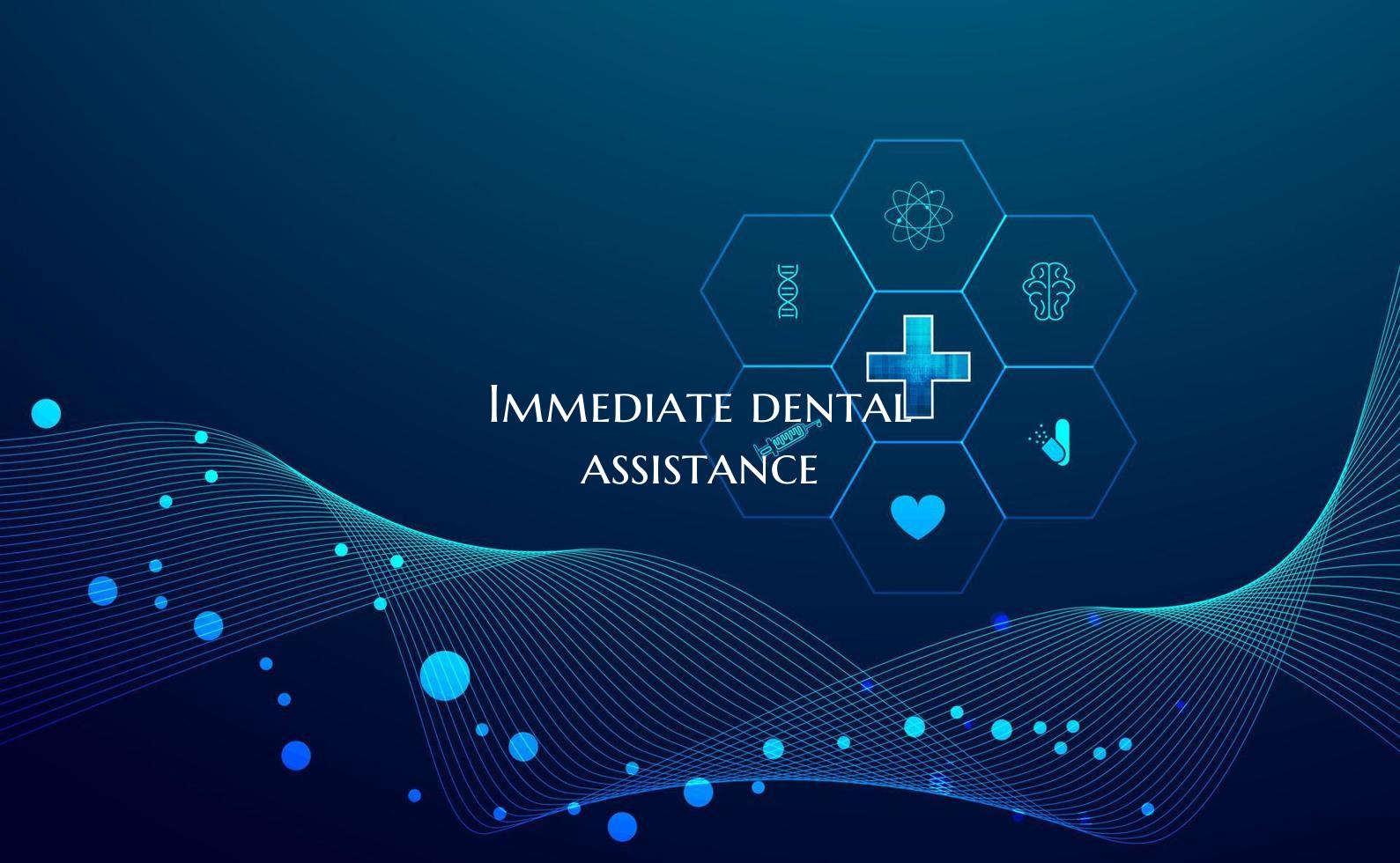
Immediate dental assistance
In times of dental emergencies, knowing what immediate actions to take can make all the difference in preserving oral health and minimizing pain. Whether it's a sudden toothache, a knocked-out tooth, a broken filling, or any other dental issue requiring urgent attention, here are some crucial steps to follow for immediate dental assistance:
1. Evaluate the Situation: Assess the severity of the dental emergency. Is there bleeding, severe pain, swelling, or a visible injury? Understanding the urgency of the situation will help determine the next steps.
2. Contact Your Dentist: If you have a regular dentist, try to reach out to their office as soon as possible. They may provide instructions over the phone or schedule an emergency appointment. If it's after hours, most dental practices have an emergency line or an on-call dentist available.
3. Manage Pain: Over-the-counter pain relievers like ibuprofen can help manage discomfort until you receive professional treatment. Avoid aspirin as it can increase bleeding. If there is swelling, applying a cold pack to the outside of the mouth can help reduce it.
4. Handling a Knocked-Out Tooth: If a permanent tooth is knocked out, try to gently rinse it with water without scrubbing the root. If possible, place it back into the socket and hold it in place with gentle pressure. If reinsertion is not possible, store the tooth in a container with milk or saliva and get to a dentist within 30 minutes for the best chance of saving the tooth.
5. Dealing with a Broken Tooth or Filling: Save any broken tooth fragments or lost fillings and bring them to your dentist. Rinse your mouth with warm water and avoid chewing on the affected side. A temporary dental cement available at pharmacies can be used to cover sharp edges until you see your dentist.
6. Control Bleeding: If there is bleeding from the mouth, gently bite down on a clean gauze or cloth to apply pressure. Change the gauze as needed but avoid excessive spitting, as it can dislodge blood clots necessary for healing.
7. Stay Calm: Dental emergencies can be stressful, but staying calm and composed will help you make better decisions and handle the situation effectively. Remember that quick action and seeking professional help are key to a successful outcome.
Remember, timely intervention is crucial in dental emergencies to prevent further complications and preserve oral health. While these tips can provide immediate assistance, always follow up with a dental professional for proper evaluation and treatment.